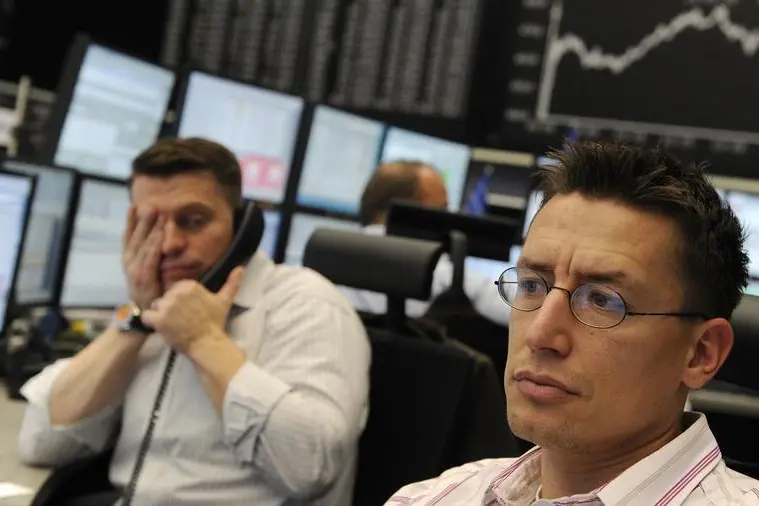PHOTO
Potential damage to business from China's fast-spreading coronavirus knocked more than 2% off European stocks on Monday, after the world's second biggest economy ramped up travel bans and extended the Lunar New Year holidays.
More than 97% of stocks in the STOXX 600 were trading in the red with many toppling from record highs, wiping out around 180 billion euros of market capitalisation from the European share index.
The biggest jolt was felt by luxury, airlines and hotel issues, which see big demand from Chinese consumers. Europe's major luxury players have lost more than $50 billion in market value since the outbreak last week.
"Markets had been vulnerable to an eventual correction given signs of exuberance such as strong price momentum, high valuations and overweight positioning, but a pandemic is rarely on anyone’s list of negative catalysts," said John Normand, head of cross-asset fundamental strategy at JPMorgan.
Meanwhile, safe-haven investment options such as gold and government bonds rose as the death toll from the outbreak in China increased to 81 and the number of cases of infection jumped by about 30% in a day.
A small number of cases linked to people who travelled from the outbreak's epicentre have been confirmed in more than 10 countries, including Thailand, France, Japan and the United States. No deaths have been reported elsewhere.
Led by a steep sell-off in luxury retailers, France's CAC lagged all regional bourses falling 2.2%. LVMH, Christian Dior, Hermes and Gucci owner Kering, which are heavily reliant on Chinese demand, fell more than 3%.
Other companies in the luxury space such as Burberry Group Plc, Moncler SpA, Swiss watchmakers Swatch and Richemont declined between 2.7% and 4.6% while airport retailer Dufry AG was set for its steepest one-day drop in more than a year.
Comparing the new coronavirus with the SARS outbreak in 2002-03, Bernstein analysts highlighted that Chinese nationals accounted for just 2% of the global luxury goods market in 2003 versus a whopping 35% in 2019.
"Equities are finally beginning to contemplate the possibility that the virus 2019-nCoV (coronavirus) in China will have significant economic impact as the lockdown is now affecting 56 million people," said Peter Garnry, head of equity strategy at Saxo Bank.
The Euro Stoxx 50 volatility index, European investors' 'fear gauge', has jumped to its highest level since Dec. 3.
With rising travel curbs, flight operators Air France, Lufthansa and British Airways-owner IAG, cruise line operator Carnival Corp, hotel group Accor and IHG took a hit, pushing Europe's travel & leisure index to a near seven-week low.
The basic resources index eyed its worst day in nearly six months hit by growth fears in China, the world's top metals consumer.
(Reporting by Medha Singh in Bengaluru and Thyagaraju Adinarayan in London; Editing by Toby Chopra) ((Medha.Singh@thomsonreuters.com; within U.S. +1646 223 8780, outside U.S. +91 80 6749 1130; Twitter: https://twitter.com/medhasinghs;))





















